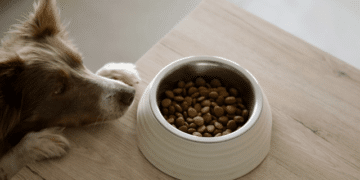As pet owners, we love spoiling our furry companions—but choosing the best healthy treats for your pet is about more than just indulgence. It’s about supporting their health, reinforcing good behavior, and strengthening your bond. Whether you’re training a new puppy or just want to reward your cat for being adorable, opting for natural, nutritious snacks is key.
Why Healthy Treats Matter
Not all treats are created equal. Many store-bought snacks are packed with artificial flavors, preservatives, and low-quality fillers. These can contribute to weight gain, digestive issues, and long-term health problems. Healthy pet treats, on the other hand, are made with quality ingredients that offer real nutritional benefits.
When you make smart treat choices, you’re not just giving your pet something tasty—you’re contributing to their overall well-being. The right treats can promote healthy teeth, a shiny coat, strong immunity, and more.
What Makes a Treat Healthy?
To determine whether a snack is truly beneficial, look at the ingredient list and nutritional content. Here are some things to look for when choosing vet-approved pet snacks:
-
Limited ingredients: Less is more. Choose treats that contain just a handful of whole-food ingredients you can recognize.
-
High-quality protein: Meat-based treats are ideal, especially if they’re the first ingredient listed.
-
No artificial additives: Avoid snacks with artificial colors, flavors, or preservatives.
-
Grain-free or whole grain: Depending on your pet’s dietary needs, look for whole grains like brown rice or avoid grains altogether if necessary.
-
Low-calorie options: Treats should be just that—treats. They shouldn’t account for a large portion of your pet’s daily calorie intake.
The Best Types of Healthy Treats
There’s a wide variety of healthy pet treats available today, including options for dogs and cats of all sizes, ages, and dietary preferences. Here are some top picks to consider:
Freeze-Dried Meats
One of the most natural dog and cat treat options is freeze-dried meat. These snacks are often made with a single protein source like chicken, salmon, or beef liver. They’re minimally processed, high in protein, and free of fillers. Many pets love the rich, meaty flavor.
Dental Chews
Dental chews are a great way to promote oral health while treating your pet. They help reduce plaque and tartar buildup and can freshen breath. Just make sure to choose products approved by veterinarians and sized appropriately for your pet.
Limited-Ingredient Biscuits
Natural cat treats and dog biscuits made with limited ingredients are perfect for pets with food sensitivities. Look for varieties that include sweet potatoes, pumpkin, or oats as a base, and avoid any added sugars or chemicals.
Homemade Treats
Making treats at home is a fun and easy way to control exactly what your pet is eating. Simple recipes like baked sweet potato slices, frozen banana bites, or homemade peanut butter cookies (with xylitol-free peanut butter) are great starting points.
Safe Fruits and Vegetables
Some human foods make excellent pet treats. A few safe options include:
-
Carrots
-
Blueberries
-
Apples (without seeds)
-
Green beans
-
Watermelon (seedless)
These are low-calorie and rich in vitamins, making them some of the best dog treats when given in moderation.
Vet-Recommended vs. Store-Bought Treats
When shopping for treats, look for labels that mention AAFCO compliance, which indicates nutritional adequacy. Vet-approved pet snacks will often include certifications or be recommended by veterinary professionals for specific health benefits.
While not all store-bought treats are unhealthy, it’s important to research the brand and ingredients. Avoid treats made in countries with questionable safety standards, and prioritize products made with transparency and quality assurance.
Tips for Smart Treating
Even the healthiest treat can lead to problems if overused. Here are a few tips to help you treat responsibly:
-
Watch portion size: Treats should make up no more than 10% of your pet’s daily caloric intake.
-
Use treats for training: Small, tasty snacks are ideal for rewarding positive behavior.
-
Consider your pet’s age and activity level: Senior pets or those with health conditions may require low-fat or hypoallergenic treats.
-
Rotate treat types: Mix things up to avoid boredom and ensure a variety of nutrients.
Treats to Avoid
Some treats are not only unhealthy but potentially dangerous. Steer clear of these:
-
Rawhide (can cause choking or digestive blockages)
-
Treats with artificial preservatives like BHA or BHT
-
High-fat or sugary snacks
-
Human foods like chocolate, grapes, onions, and garlic
Always check with your vet if you’re unsure about a particular food or treat.
Final Thoughts
The best healthy treats for your pet are the ones that nourish their body and bring them joy—without compromising their health. Whether you choose natural cat treats, freeze-dried dog snacks, or make your own at home, always prioritize quality and safety. Treating your pet with care and love means choosing snacks that support their long, happy life.









